Good Practices and Lessons Learned: Case studies of 15 EC-funded projects
Discussion details
The RNSF team recently published a new research report entitled “Volume 4.3 - Good Practices and Lessons Learned: Case studies of 15 EC-funded projects”. It is part of a series of studies identifying good practices and lessons learned related to the informal economy and composing the volume 4 of the RNSF research. It follows suit to the volumes 4.1 (Good Practices and Lessons Learned Extracted from 33 Projects Selected Under the 2009 EC call for Proposals: “Investing in People. Promoting social cohesion, employment and decent work. Support for social inclusion and social protection of workers in the informal economy and of vulnerable groups at community level) and 4.2 (Recommendations Based on Analysis of a Range of Development Agencies on Support to People Dependent on the Informal Economy).
Volume 4.3 approaches the informal economy as a crosscutting issue addressed in the framework of projects primarily focused on a wide range of topics. It highlights that practically every development project faces the issue of informality and invites development agencies to pay increased attention to the IE and eventually consider including the IE among the set of crosscutting issues taken into consideration in project design and evaluation.
This analysis has led to the identification of 6 best practices, 4 tools and 6 lessons learnt. In the upcoming weeks, a selection of specific contents will be available on the platform of the IESF group.
This third report is the result of a qualitative approach applied to 15 projects selected with the European Commission that consisted first in screening the good practices and lessons learned identified in the project narrative and evaluation reports, and then in analysing the projects from the informal economy point of view, to highlight the linkage to the IE relevant context. This analysis was based on 4 research questions:
- Enabling environment: What are the key ways to successfully support the enabling environment at national and sub-national level for enhancing the livelihoods of those dependent on the informal economy, with special attention to social inclusion? This includes legal and policy framework development, institution and capacity strengthening as well as coordination.
- Decent work and enterprise growth: What key elements have been proven to contribute to successful formalisation of growth oriented informal economy enterprises and that help ensure informal economy decent work conditions?
- Direct actions in communities: What are the key proven direct actions at local level that contribute to the successful enhancement of livelihoods and working conditions for those working in informal economy enterprises with special attention to social inclusion?
- What innovative approaches do national and international entities use to enhance livelihoods, equity and inclusion of people dependent on the informal economy? In addition: what are the new strategies adopted by people relying on informal economy activities themselves? What are the approaches used by / relevant for the specific vulnerable groups?
The following charts shows the various profiles of the analysed projects:
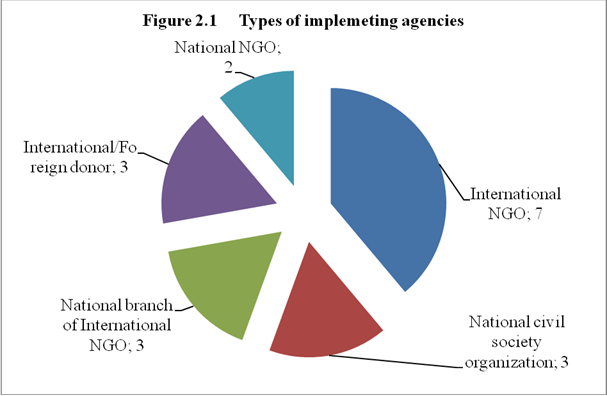
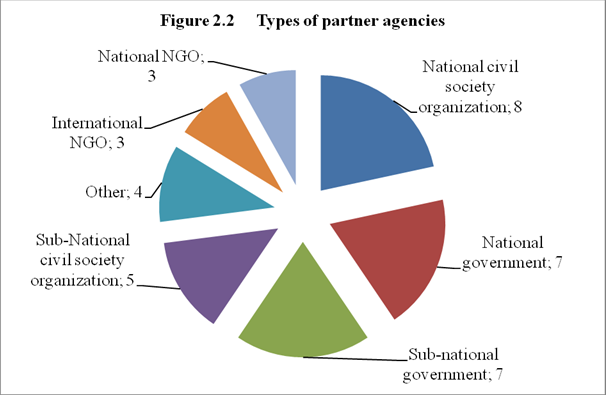
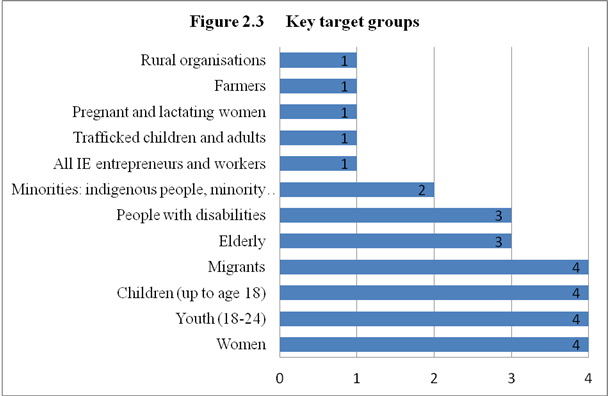
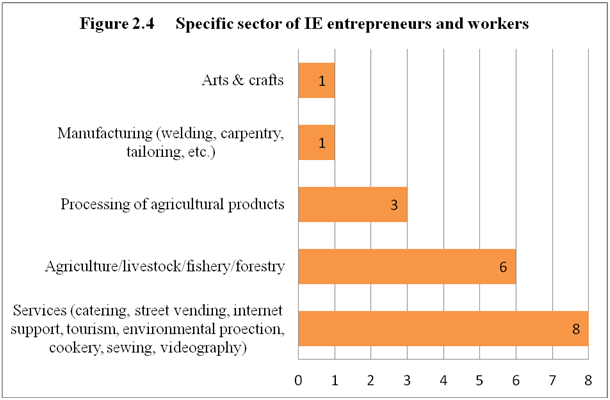
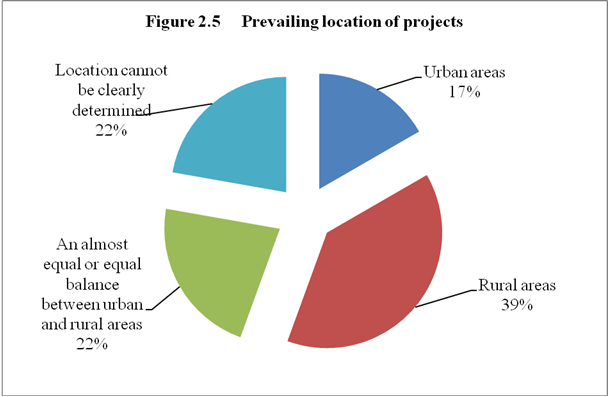
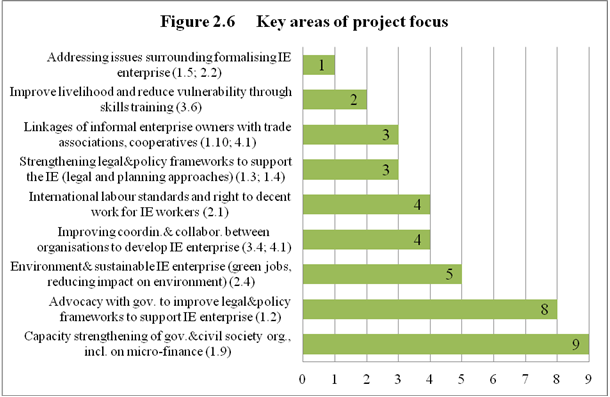
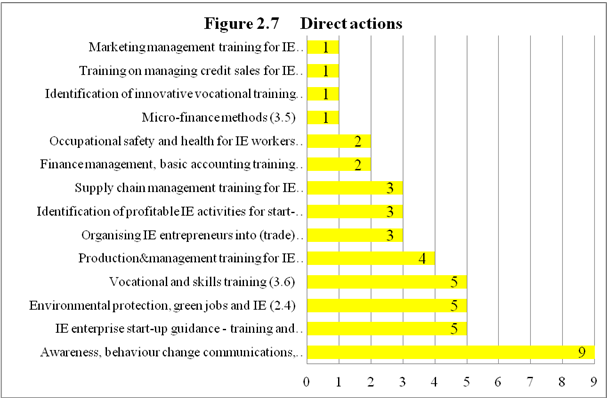
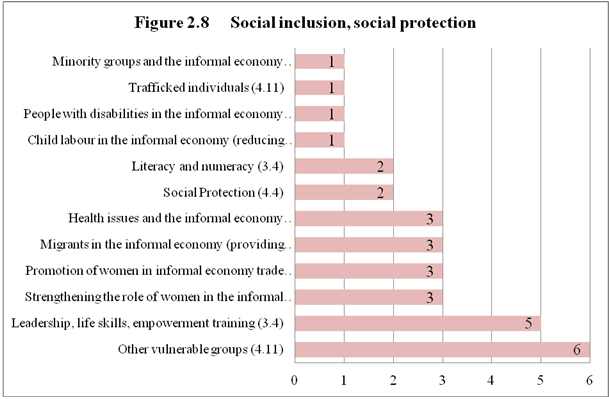
(1)
Log in with your EU Login account to post or comment on the platform.
Formalising informal economy seems to be the hardest task EC-funded projects (only 1 project focuses on this key area), and indeed we know that this is a very long and difficult process that requires massive efforts (Louise Fox, Martha Chen). Nevertheless, the Sustainable Development Goals include a target to promote formalisation (SDG 8.3) as a proxy for decent work.
Best practices will help us in better understanding what is feasible and what is not, but unfortunately no recipes for success will come up from these projects. We need to know what are the main barriers to successful formalisation and which are alternative solutions to formalisation.